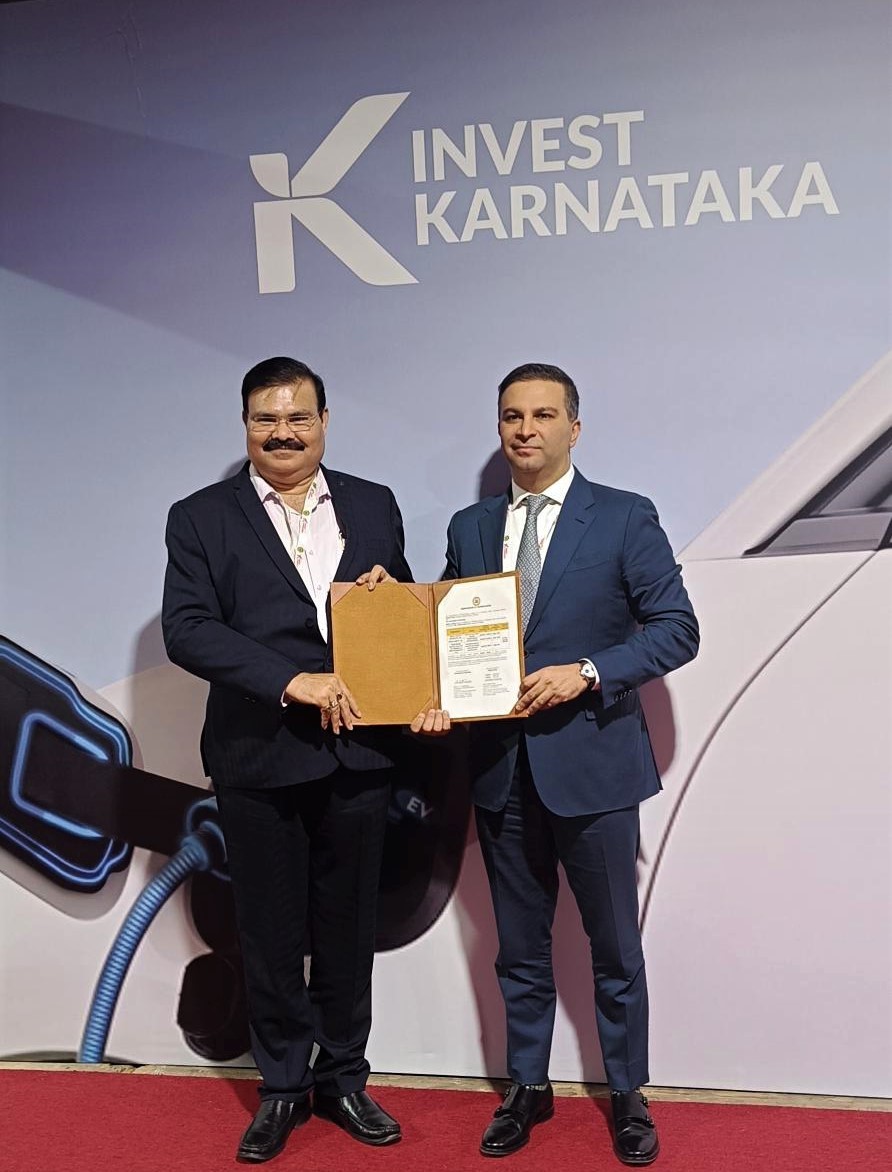Epsilon Group has signed a Memorandum of Understanding (MoU) with the Government of Karnataka to invest INR 15,350 crore in developing a manufacturing and research facility for EV battery testing and advanced materials in Karnataka.
“This strategic investment, planned over the next ten years, will bolster India’s electric vehicle (EV) ecosystem, creating thousands of jobs, and strengthen India’s position as a hub for advanced battery technology,” stated Epsilon Group.
As part of the MoU, Epsilon Group, along with its subsidiaries Epsilon Advanced Materials and Epsilon CAM, will manufacture sustainable and high-performance graphite anode and lithium iron phosphate (LFP) cathode battery materials while Inspire Energy Research Center will focus on R&D, testing and training for EV battery materials and battery manufacturers.
The plan includes an investment of INR 9,000 crore to set up a graphite anode manufacturing plant, INR 6,000 crore for a LFP cathode manufacturing plant, and INR 350 crore for battery materials and battery testing R&D and training center.
The state government will facilitate necessary approvals, incentives, and infrastructure support for Epsilon Group’s projects.
The Epsilon Group, established in 2010, is driving the global carbon black and battery materials industry through its subsidiaries, Epsilon Carbon, Epsilon Advanced Materials and Epsilon CAM.
Epsilon Carbon has set up India’s first backward integrated carbon facility spanning 165-acres in Bellary, Karnataka, for carbon black and specialty carbon manufacturing with an annual capacity of 215,000 tons and 320,000 tons, respectively.
Epsilon Advanced Materials develops sustainable graphite anode and LFP cathode battery materials. The company has commissioned India’s first graphite anode material customer qualification plant in Bellary, Karnataka, with plans to produce 30,000 tons/annum by 2027 and scale up to 100,000 tons/annum by 2030. It has made strategic investments globally for manufacturing graphite anode material in USA with 60,000 tons/annum by 2030; and 60,000 tons/annum by 2030 in Finland.
Epsilon CAM forayed into LFP based cathode active material business through a technology center in Germany with plans to manufacture 100,000 tons by 2030.
This content is protected by copyright and may not be reused. If you want to cooperate with us and would like to reuse some of our content, please contact: editors@pv-magazine.com.









By submitting this form you agree to pv magazine using your data for the purposes of publishing your comment.
Your personal data will only be disclosed or otherwise transmitted to third parties for the purposes of spam filtering or if this is necessary for technical maintenance of the website. Any other transfer to third parties will not take place unless this is justified on the basis of applicable data protection regulations or if pv magazine is legally obliged to do so.
You may revoke this consent at any time with effect for the future, in which case your personal data will be deleted immediately. Otherwise, your data will be deleted if pv magazine has processed your request or the purpose of data storage is fulfilled.
Further information on data privacy can be found in our Data Protection Policy.